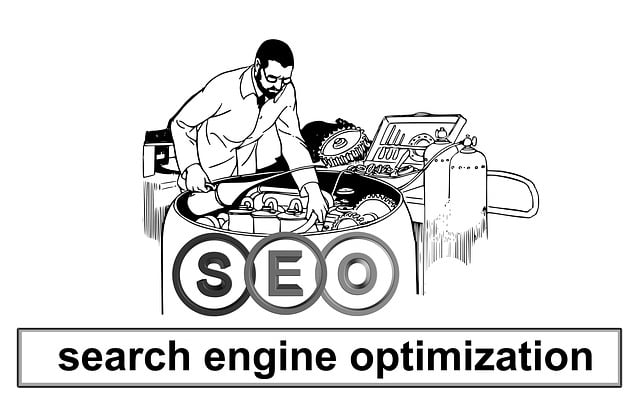Schema Markup is a crucial component of Technical SEO Training, empowering businesses to optimize their online visibility. By embedding structured data within HTML, websites provide search engines with clear context about content, improving rankings and click-through rates. Through various schema types tailored to specific categories, it enhances search engine comprehension, encourages rich snippets, and drives traffic—essential skills gained in Technical SEO Training for success in today's digital era.
Schema Markup Training: Unlocking Your Website’s Potential
In today’s digital landscape, Technical SEO is crucial for online success. Among its many tools, Schema Markup stands out as a game-changer. This comprehensive guide offers an in-depth look at Schema Markup, from its technical foundations to advanced strategies. We’ll explore how this structured data helps search engines understand your content better, enhancing visibility and driving more qualified traffic. Get ready to master the art of Schema Markup with our expert training.
Understanding Schema Markup: A Technical SEO Foundation

Schema Markup is a powerful tool for any website looking to enhance its online visibility, and it’s an essential part of what we refer to as Technical SEO Training. It involves using structured data to describe your content in a way that search engines can easily understand and interpret. By adding this code to your HTML, you’re essentially providing additional context about your web pages, helping search engine algorithms better grasp the meaning and intent behind your content. This is crucial for improving how your site appears in search results, making it more attractive to potential visitors.
For example, let’s say you run a restaurant website; with Schema Markup, you can mark up your menu items, chef profiles, and reviews, allowing search engines to display rich snippets in the search results. These rich snippets provide users with essential information at a glance, such as ratings, prices, and cooking times for recipes, enhancing the overall user experience. Thus, Technical SEO Training on Schema Markup equips web developers and content creators with the skills to optimize their sites’ potential, making them stand out in a competitive online landscape.
The Role of Schema in Enhancing Search Engine Visibility

Schema Markup is an essential component in a comprehensive Technical SEO Training program, as it plays a pivotal role in enhancing search engine visibility. By providing structured data to search engines, schema helps them better understand and interpret web page content. This, in turn, leads to improved indexing and ranking, which are critical for online visibility.
For businesses aiming to boost their digital presence, mastering Schema Markup is crucial. It allows websites to stand out in search results with rich snippets, offering users a more engaging experience. Moreover, it can drive higher click-through rates due to the enhanced display of page information, ultimately increasing traffic and potential conversions.
Types of Schema Markups: A Comprehensive Overview

Schema markup is a powerful tool in the arsenal of any digital marketer, and understanding its various types is essential for anyone seeking comprehensive Technical SEO training. It involves using structured data to help search engines better comprehend the content on a webpage, thereby enhancing visibility and click-through rates. The beauty of schema lies in its versatility, catering to diverse website categories from local businesses to e-commerce sites.
There are several types of schema markups, each tailored for specific purposes. For instance, Article Schema is ideal for blog posts or news articles, providing details like publication date, author, and summary. Product Schema, on the other hand, is designed for e-commerce, offering information such as product name, price, availability, and reviews. Event Schema is used to highlight upcoming occasions, including title, date, location, and ticket pricing. Other popular types include Review Schema, Recipe Schema, and Local Business Schema, each refining the way search engines interpret and display website content.
Implementing Schema: Best Practices and Tools

Implementing Schema Markup is a powerful strategy for enhancing Technical SEO Training and improving your website’s visibility on search engines. The best practices involve ensuring consistency and accuracy in applying structured data across your site. Start by identifying relevant schema types for your content, such as products, articles, or events, and then meticulously fill out the details, including titles, descriptions, dates, and prices. Tools like Google’s Structured Data Markup Helper can assist with this process, providing real-time validation and guidance.
When implementing Schema, consider using microdata formats to ensure compatibility across search engines. Well-structured data not only helps search engines understand your content better but also encourages rich snippets in search results, attracting more clicks. Regularly review and update your schema markup as your website evolves, especially when introducing new content types or significant changes. This ongoing maintenance is key to reaping the full benefits of Schema Markup for your Technical SEO Training efforts.
Measuring Success: Analyzing Schema Markup Effects

Measuring the success of Schema Markup implementation is a crucial step in any Technical SEO Training program. By analyzing the effects, businesses can understand how structured data impacts their online visibility and user engagement. Through various tools and metrics, marketers and developers can track changes in click-through rates (CTRs), search rankings, and overall website traffic. This data-driven approach allows for iterative improvements to schema markup code, ensuring it aligns with evolving search engine algorithms.
Regular assessments help identify areas where Schema Markup is particularly effective or may need adjustments. For instance, rich snippets might significantly boost CTRs for specific content types, indicating successful implementation. Conversely, low engagement could signal inconsistencies or complex structures that require simplification. Thus, continuous analysis enables optimizations that enhance both user experience and search engine visibility, ultimately driving better results in the competitive digital landscape.
Advanced Strategies for Optimal Schema Utilization

In the realm of Technical SEO Training, mastering schema markup is a game-changer. Beyond the basics, advanced strategies focus on leveraging schema to enhance search engine understanding and improve visibility. By going beyond simple schema implementation, experts employ structured data types tailored to specific content types, such as events, products, or local businesses, enabling more precise indexing and richer snippet displays in search results.
For optimal utilization, consider schema microdata embedding within relevant HTML elements, ensuring it’s valid and consistent across pages. Regularly updating schema markup to align with evolving business information and content changes is crucial. Additionally, utilizing Schema.org vocabulary ensures interoperability between different tools and platforms, simplifying the process for both developers and search engines alike.
